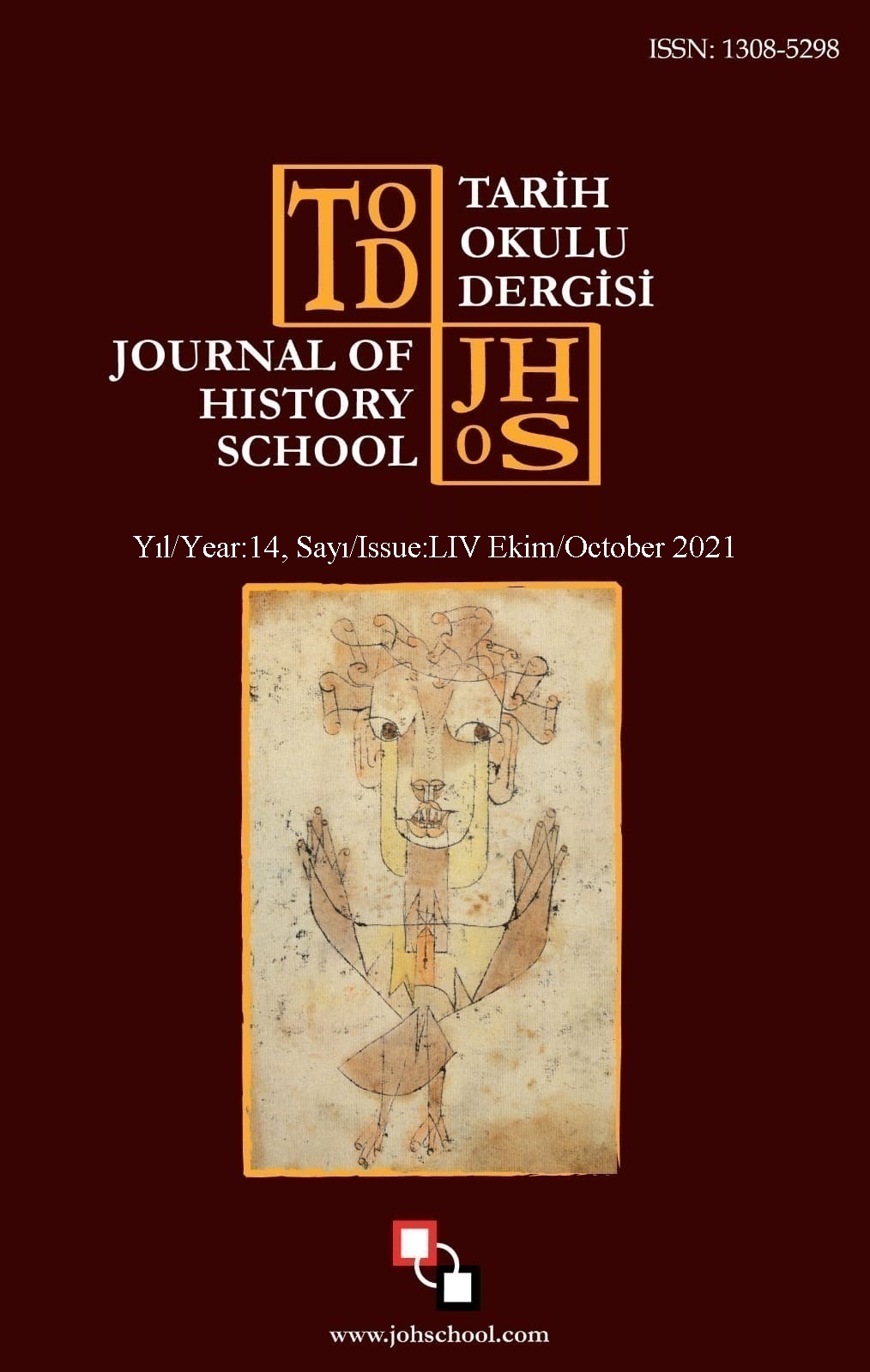Author :
Abstract
Etik son yıllarda üzerinde önemle durulan bir konu haline gelmiştir. Etik, toplumun bakış açısını dikkate alarak bireylerin uygun ve uygun olmayan davranışlarını belirler. Bireylerin etik davranışları öğrenmesi ve benimsemesinde eğitim oldukça önemli bir süreçtir. Eğitim sürecinde bireyin özellikle eğitim yaşamında ihtiyaç duyacağı bilimsel etiğin kazandırılması önem arz etmektedir. Bilimsel etik normlarının kazandırılması öğrencilerin eğitim sürecinde yapacakları çalışmalarda yararlanacakları kaynakların bir emek ürünü olduğunu fark etmesini sağlayabilir. Bu kapsamda toplumsal olayları konu edinen Sosyal Bilgiler öğretim programında bilimsel etik ile ilgili çeşitli kavram ve değerler yer almaktadır. Eğitim sürecinde öğrencilere programda yer alan bilimsel etik ilkeler öğretilmektedir. Ancak programın amacına ulaşması için öğrencilerin bu etik ilkeleri benimseyip davranışa dönüştürmeleri önemlidir. Bu durumdan hareketle hazırlanan bu çalışmanın amacı öğrencilerin deneyimlerine göre kendilerinin ve öğretmenlerinin bilimsel etik değerlere uyma sıklığına ilişkin görüşlerini belirlemektir. Araştırmada nicel araştırma yöntemlerinden tarama modeli kullanılmıştır. Bu araştırmanın örneklemini (katılımcılarını), Adıyaman ili merkez ilçesinde bulunan Millî Eğitim Bakanlığına bağlı devlet okullarında okuyan 5, 6 ve 7 sınıf öğrencilerinden oluşan 1002 kişi oluşturmaktadır. Çalışmada veri toplama aracı olarak araştırmacılar tarafından geliştirilen “Öğrenci Görüşüne Göre Bilimsel Etik Değerler Anketi” kullanılmıştır. Araştırma kapsamında elde edilen sonuçlara göre öğrencilerin bilimsel etiğe ilişkin algıları sınıf düzeyine göre farklılaşmamaktadır. Ancak sonuçlar okul türü değişkenine göre incelendiğinde ise imam hatip ortaokulu öğrencilerinin lehine oluşan farklılaşma ortaya çıkmıştır. Öneri olarak; Araştırmaya dâhil edilen öğrencilerin yaş düzeyleri göz önüne alındığında öğretmenlerini rol-model alabilecekleri yaşlarda olmaları, bilimsel etik konusunda öğretmenlerinden etkilenmeleri ihtimaliyle öğretmenlere bilimsel etik temelinde lisansüstü eğitimler verilerek hem etik konunda rol model olma hemde bu konuda eksiklerinin giderilmesi sağlanabilir.
Keywords
Abstract
Ethics has become a subject emphasized significantly in recent years. Ethics determines the appropriate and inappropriate behaviors of individuals, paying attention to society's perspective. Education is a crucial process for individuals to learn and adopt ethical behaviors. In the educational process, it is important to provide the individual with scientific ethics, which the individual will need particularly in his/her educational life. The acquisition of scientific ethical norms can help students notice that the sources they will use in their studies during the education process are a product of labor. In this context, there are various concepts and values with respect to scientific ethics in the Social Studies curriculum, which addresses social events. During the education process, students are taught the scientific ethical principles stated in the curriculum. However, for the program to reach its purpose, it is important for students to adopt these ethical principles and turn them into behaviors. The aim of this study, which was prepared on this basis, is to determine students' experiences regarding students' and their teachers' compliance with scientific ethical values. The survey model, one of the quantitative research methods, was used in the study. The sample (participants) of this study is comprised of 1002 5th, 6th and 7th-grade students who were studying in public schools affiliated to the Ministry of National Education in the central district of Adıyaman province. In the study, the "Scientific Ethical Values According to Student's Opinion Questionnaire" developed by the researchers was used as a data collection tool. According to the results obtained within the scope of the research, the students' perceptions of scientific ethics do not differ according to the grade level. However, when the results were analyzed according to the school type variable, the differentiation in favor of the imam hatip secondary school students emerged. As a suggestion; Considering the age levels of the students included in the study, the behavior of teachers regarding scientific ethics can be investigated, since they are at an age where they can take their teachers as role-models, and because of the possibility of being influenced by their teachers in scientific ethics.





